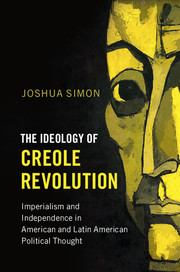 The Ideology of Creole Revolution
The Ideology of Creole Revolution Book contents
- The Ideology of Creole Revolution
- Problems of International Politics
- The Ideology of Creole Revolution
- Copyright page
- Contents
- Acknowledgments
- 1 Introduction: The Ideas of American Independence in Comparative Perspective
- 2 The Ideology of Creole Revolution
- 3 Alexander Hamilton in Hemispheric Perspective
- 4 Simón Bolívar and the Contradictions of Creole Revolution
- 5 The Creole Conservatism of Lucas Alamán
- 6 The End of Creole Revolution
- 7 Conclusion: From the Creole Revolutions to Our Americas
- Notes
- Bibliography
- Index
- References
Bibliography
Published online by Cambridge University Press: 19 May 2017
- The Ideology of Creole Revolution
- Problems of International Politics
- The Ideology of Creole Revolution
- Copyright page
- Contents
- Acknowledgments
- 1 Introduction: The Ideas of American Independence in Comparative Perspective
- 2 The Ideology of Creole Revolution
- 3 Alexander Hamilton in Hemispheric Perspective
- 4 Simón Bolívar and the Contradictions of Creole Revolution
- 5 The Creole Conservatism of Lucas Alamán
- 6 The End of Creole Revolution
- 7 Conclusion: From the Creole Revolutions to Our Americas
- Notes
- Bibliography
- Index
- References
- Type
- Chapter
- Information
- The Ideology of Creole RevolutionImperialism and Independence in American and Latin American Political Thought, pp. 247 - 270Publisher: Cambridge University PressPrint publication year: 2017


